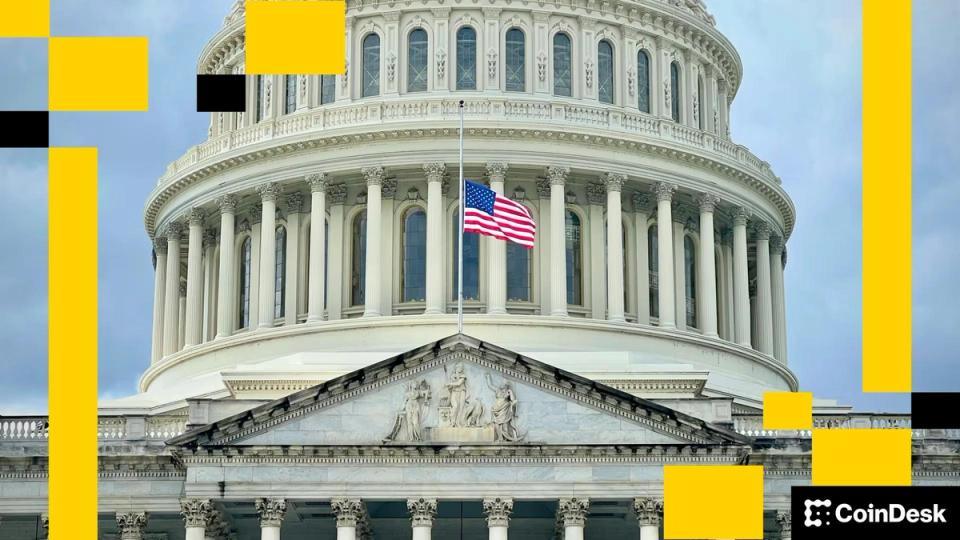The Senate Agriculture Committee has released its own market structure bill, addressing digital products and how the Commodity Futures Trading Commission could oversee this sector of the crypto market.
You’re reading State of Crypto, a CoinDesk newsletter that examines the intersection of cryptocurrency and government. Click here to subscribe to future editions.
The story
We have a new crypto market structure bill! Are we close to seeing this bill pass through Congress? Sort of.
Why it matters
The publication by the Senate Agriculture Committee of a first bill constitutes a key step. The draft as released has a number of parts that will likely be updated or require agreement between Republicans and Democrats before it can progress further, but we at least now have confirmation that lawmakers and their aides are still working on it.
Break it down
The new bill defines digital products and explains how Congress might want the CFTC to regulate them, as it brings the agency closer to the primary role of overseeing the crypto spot market.
The bill’s text included a number of bracketed sections, indicating areas where lawmakers had not yet reached firm agreement on what the final text should say. These bracketed sections included things as simple as definitions, as well as more complex regulatory guidance for the CFTC.
“The CFTC plays a critical role in maintaining the integrity and stability of our financial and derivatives markets,” committee Chairman John Boozman said in a statement. “As Congress works to expand the commission’s authority to oversee the trading of digital assets that are commodities, it is critical that we also ensure that it has the tools, personnel and resources necessary to carry out this new mission, as well as its current responsibilities. Strengthening this institution better protects consumers, encourages innovation, promotes transparency and maintains liquid and resilient markets.
Sen. Cory Booker said in a statement that the bill was “a first step” but that lawmakers “still have important work to do before advancing the bill out of committee.”
“I am particularly concerned about the lack of resources and bipartisan CFTC commissioners preventing regulatory arbitrage, as well as the continued corruption of public officials and whether Congress has created the appropriate safeguards to prevent this wrongdoing,” he said. “I urge my colleagues and external stakeholders to come together to resolve these issues.”
One provision of the bill would require the CFTC to have at least two commissioners and minority party commissioners before it can actually begin rulemaking. Another provision addressed conflict of interest issues, but both of those provisions included brackets suggesting that the wording or the provisions themselves could change before the bill is finalized.
Crypto industry representatives appear to like the fact that the bill continues to move forward, despite the recent record-breaking government shutdown and the dwindling amount of time left in the year for Congress to do something.
In a statement, Blockchain Association CEO Summer Mersinger called the project’s release “another important milestone,” while DeFi Education Fund executive director Amanda Tuminelli said it was “good to see the [Agriculture] The committee is making progress on the market structure.
Ji Hun Kim, CEO of the Crypto Council for Innovation, called the project “significant positive progress toward establishing a comprehensive and responsive market structure framework for digital products in the United States,” in a statement.
The process still needs to be combined with that of the Senate Banking Committee, Mersinger noted in his statement.
“We hope that the section left open for DeFi will be supplemented with strong protections for developers that clearly distinguish centralized intermediaries from software developers without custody or control of other people’s money,” Tuminelli said.
Looking ahead, the specific path to the passage is a bit unclear. A person who works in DC policymaking told CoinDesk that there are about three weeks of work in December for Congress, significantly limiting the time lawmakers have to hold hearings and votes on crypto legislation this year. That means substantive work on the bill is unlikely to take place until next year, this person said, a view echoed by Ron Hammond, head of policy and advocacy at Wintermute.
Hammond told CoinDesk earlier this week that one or both committees could hold a markup hearing and vote on exiting the committee by the end of the year, but that would require a lot of work.
Even then, the bills would have to be combined before any possible vote in the Senate. Once that happens, the combined market structure bill would then go to the House of Representatives, which could vote on the Senate version (as it did with the Genius Act) or try to include some of its own priorities.
“I think the House is going to find itself in the awkward position of having to accept what the Senate produces,” Adam Minehardt, head of public policy at Chainlink, said on CoinDesk TV on Thursday.
The House may want to make sure that some form of its own bill, the Clarity Act, is included in whatever President Donald Trump signs, but “the Senate is going to continue to be in charge,” he said.
Either way, the bill won’t reach Trump’s desk until after a vote in the House, which could take us into 2026 — and election time — before he can sign it.
Wednesday
- 3:30 p.m. UTC (10:30 a.m. ET) The Senate Banking Committee will hold confirmation votes for various nominees, including FDIC Chairman nominee Travis Hill.
- 8:00 p.m. UTC (3:00 p.m. ET) The Senate Agriculture Committee will hold a confirmation hearing for CFTC presidential nominee Mike Selig.
If you have any ideas or questions about what I should discuss next week or any other comments you would like to share, please feel free to email me at [email protected] or find me on Bluesky @nikhileshde.bsky.social.
You can also join the group chat on Telegram.
See you next week!




